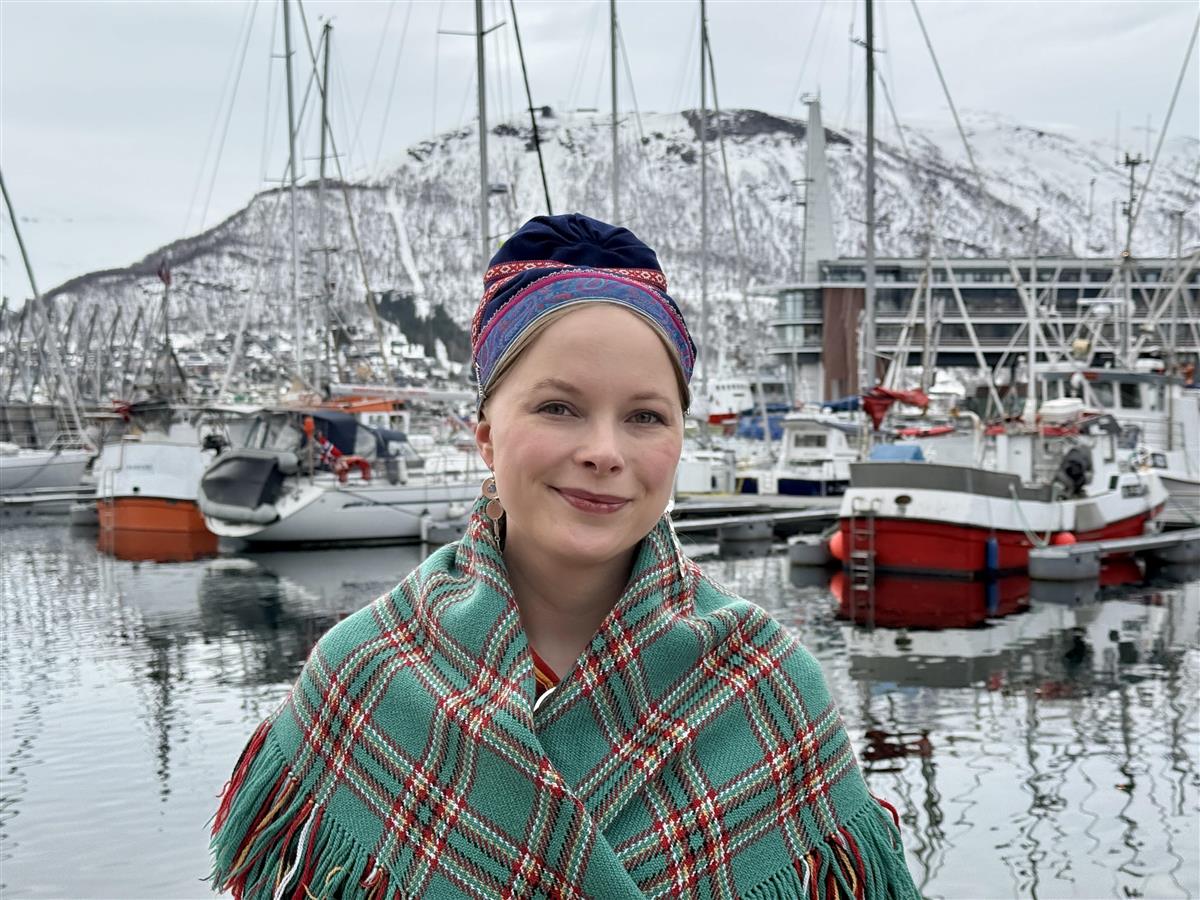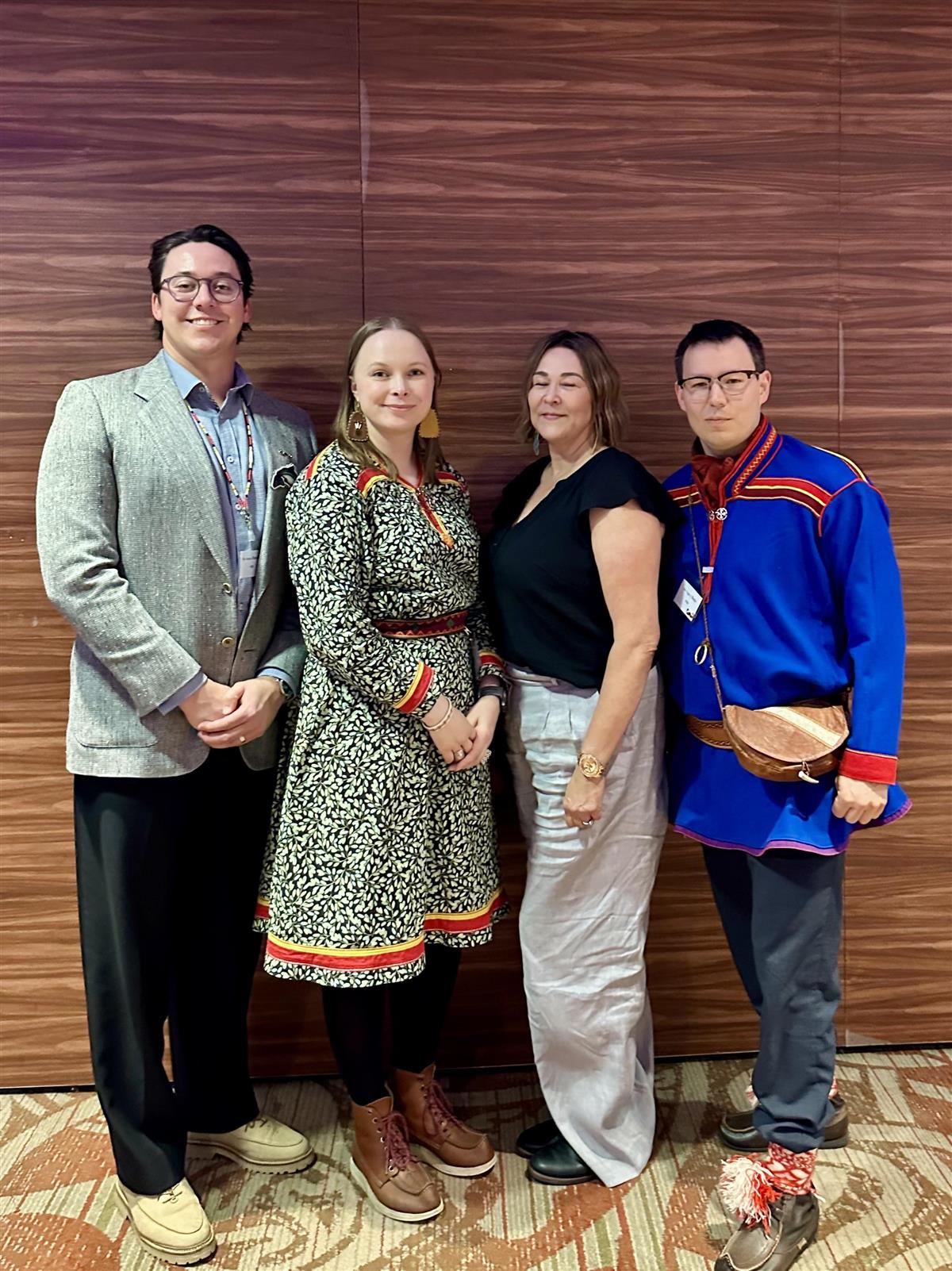
– Dette er et historisk gjennombrudd for urfolk. Dette er første gang Sametinget har deltatt med den nye urfolksstatusen. Dette er avgjørende for at urfolks kunnskap og urfolks lederskap skal være grunnlag for statenes beslutninger, sier politisk rådgiver Sandra Márjá West, som deltok i NASCO for Sametinget.
Sametinget i Norge er én av fire urfolksorganisasjoner som nå er akkreditert med denne nye statusen, sammen med Atlantic Policy Congress of First Nations Chiefs Secretariat, Houlton Band of Maliseet Indians og Unama’ki Institute of Natural Resources. Urfolksorganisasjonene har nå full talerett i alle saker som behandles i NASCO og dets kommisjoner. Urfolksorganisasjonene kan også nominere medlemmer til NASCOs arbeidsgrupper.
Den nye statusen er et resultat av mange års innsats fra urfolkrepresentanter fra Canada og Sápmi. Sametinget har deltatt som NGO siden 2012, men det ga mer begrensede muligheter for deltakelse. - Jeg er glad for det gode samarbeidet vi har med våre urfolkskolleger i Canada og USA. Som urfolk deler vi en stolthet over våre laksekulturer, men vi deler også bekymringer for laksens fremtid.
I Wales presenterte urfolksdelegasjonen sitt felles budskap og viste til Karasjok-erklæringen, vedtatt under det andre internasjonale møtet for lakseurfolk i Sápmi i 2023. Erklæringen slår fast at urfolk har en naturlig og ubestridelig rett til å delta i styring og beskyttelse av laks og dens leveområder.
Vitenskapelige presentasjoner var også på programmet i Wales. Flere av NASCOs medlemsstater pekte på oppdrett som en av de største truslene mot laksen. Den ferskeste rapporten fra Vitenskapelig råd for lakseforvaltning viser til kraftig bestandnedgang og trekker frem menneskeskapte trusler mot laksen som forklaring: klimaendringer, ødeleggelse av leveområder og påvirkning fra en oppdrettsnæring som fortsatt opererer med åpne anlegg og utilstrekkelig kontroll med lakselus og rømming.
– Oppdrettsindustrien er i dag en av de største truslene mot laksen vår. Vi krever nå at NASCO tar stilling til spørsmålet om oppdrett, og vi vil arbeide for at det innføres et internasjonalt forbud mot åpne anlegg, sier West.
Karasjok-erklæringen: https://www.iispg.com/karasjok-declaration
Åpningsinnlegg til NASCO fra urfolksorganisasjonene
(Kun på engelsk, gjengitt i sin helhet nedenfor)

«Madame President, Distinguished Delegates, Observers, Ladies and Gentlemen
This is an opening statement on behalf of the four Indigenous Peoples’ Representatives and Institutions with observer status in NASCO. We speak here for the Atlantic Policy Congress of First Nations Chiefs Secretariat, Houlton Band of Maliseet Indians, The Sámi Parliament in Norway and the Unama’ki Institute of Natural Resources.
We would like to extend our gratitude to NASCO Council for making space for Indigenous Peoples at NASCO and allowing us to take space as observers for the first time. The decisions that are made here affect us and we believe that we have valuable knowledge to offer to safeguard the salmon and its waters. We hope to further develop our role in NASCO, to better serve the salmon.
The salmon is affected both by climate change and by the nature crisis. Indigenous Peoples’ knowledge is recognized by leading researchers as a way to address the global biodiversity crisis. Our ways of being are to use sparsely, to be in dialogue with nature, and to leave our surroundings for our children, in as good as, or better state, than was left to us by our ancestors.
Last October Indigenous Peoples from across the northern hemisphere gathered in Kárášjohka for the second International Indigenous Salmon Peoples Gathering, hosted by the Sámi nation. There we wrote a statement that outlines some important common principles for salmon stewardship.
We declare that as Indigenous Salmon Peoples we continue to steward and live interconnectedly with the Salmon and Waters and it is our responsibility to uphold our relationship with the Salmon and their habitat.
We declare that the impacts from climate crisis and climate change-related stressors and industrial and commercial activities must be addressed with meaningful and holistic salmon rebuilding plans backed by significant resourcing and led by Indigenous Salmon Peoples.
We declare our rightful role as the caretakers of Salmon.
We declare that Indigenous Peoples’ authority, governance, jurisdiction and knowledge systems be recognized, respected and upheld. We emphasize that Indigenous Peoples and Indigenous Peoples’ Knowledge must be the foundation for all stewardship of Salmon.
When Salmon are healthy, Indigenous Salmon Peoples are healthy. Salmon are the lifeblood of our communities, Tribes, and Nations. Salmon are integral to our food security and food sovereignty and feature prominently in our spiritual and ceremonial practices. When Salmon do not return, Salmon Peoples practices, foodways and the Indigenous Peoples Knowledge surrounding them leads to losses in all realms of our lives, including our and the world's health and wellbeing.
As we stand here in solidarity, we would like to bring to NASCO’s attention that many of our Indigenous nations have voluntarily reduced harvests and no longer harvest in many of our traditional areas. We are proud of the good condition that our rivers are in, and we are doing our best to protect the habitats so that the salmon will return.
But we know we cannot do it alone. None of us can.
We would like to invite you to read the Declaration of the International Indigenous Salmon Peoples Gathering IISPN - Karasjok Declaration. Any person or organisation can sign it in solidarity with us.
We are looking forward to meaningful conversations and to contribute with our knowledge to the benefit of salmon. Giitu, Wela’liek, Woliwon, thank you, to the NASCO Council for giving us the floor.
Indigenous Peoples’ Representatives and Institutions. »